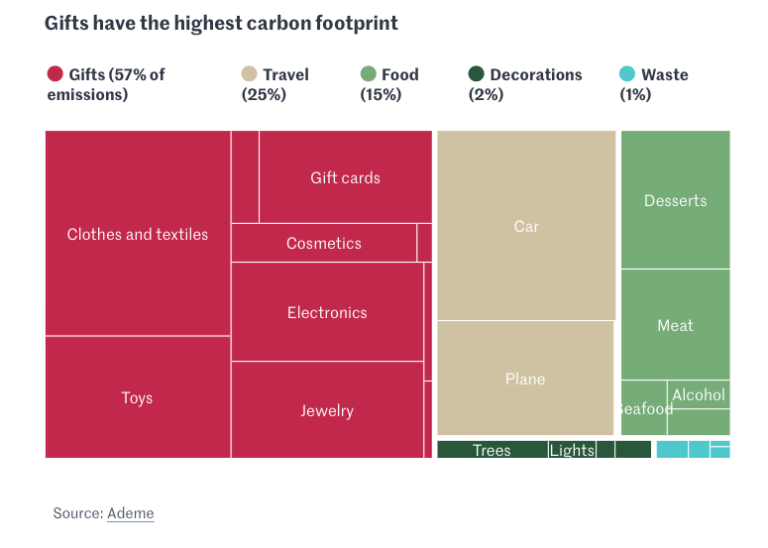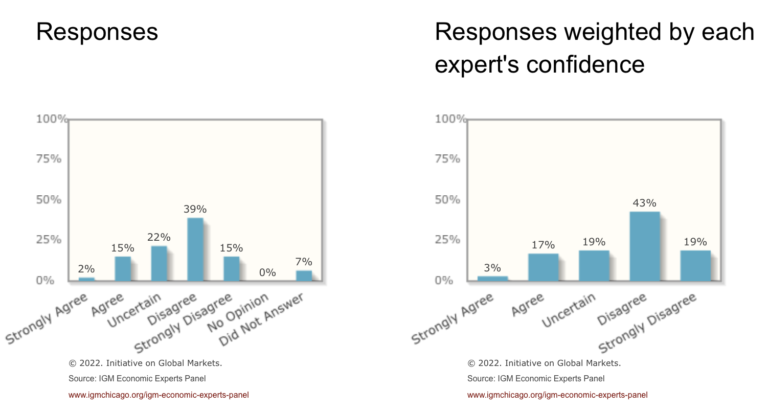Cash or Gifts for the Holidays? What Economists Say
From a purely economic standpoint, offering cashMoney in physical form such as banknotes and coins. More as a holiday gift can be more efficient and beneficial for several reasons.
Resource Allocation Efficiency
Economists often argue that the same monetary value in cash provides more “utility” to the recipient. Cash gifts allow recipients to allocate the funds according to their specific needs or desires, ensuring that the monetary value is used optimally. This can lead to a more efficient allocation of resources compared to the potential mismatch between the recipient’s preferences and the chosen gift.
In December 1993, Yale economist Joel Waldfogel measured the “deadweight loss” of Christmas by studying the difference between the cost of gifts and how much their recipients valued them after they had accounted for exchanges and put sentimental value aside. A deadweight loss is a societal cost created by market inefficiency, which occurs when supply and demand are out of equilibrium.
Waldfogel’s key argument is that the best gift-giver will, at best, replicate the recipient’s choice. It is more likely that the recipient will be left worse off than if he had made his own consumption choice with the same amount of moneyFrom the Latin word moneta, nickname that was given by Romans to the goddess Juno because there was a minting workshop next to her temple. Money is any item that is generally accepted as payment for goods and services and repayment of debts, such as taxes, in a particular region, country or socio-economic context. Its onset dates back to the origins of humanity and its physical representation has taken on very varied forms until the appearance of metal coins. The banknote, a typical representati... More. To support his hypothesis, Waldfogel ran a survey among Yale undergraduate students and estimated that gift-giving destroyed between 10% and 30% of the value of gifts.
By applying these ratios to the value of Christmas expenditure in 1992, Waldfogel estimated that giving gifts instead of cash amounted to between $4 and 13 billion in deadweight loss in the US alone. These figures would naturally be far higher today.
Reduction in Unwanted Gifts
Traditional gift-giving can sometimes result in the exchangeThe Eurosystem comprises the European Central Bank and the national central banks of those countries that have adopted the euro. More of items that may not align with the recipient’s preferences or needs. Cash eliminates this risk, reducing the likelihood of unwanted gifts and the subsequent need for returns or exchanges. Finder.com estimated that in 2022, 32 million Brits (62% of the population) would receive at least one unwanted gift worth some £1.2 billion combined.
This is illustrated by the debate between economists Alex Tabarrok and Tyler Cowen in the video below.
Economic Stimulus
Cash also provides an immediate injection of funds into the recipient’s hands, promoting spending and contributing to economic stimulus. This spending can have a ripple effect through various sectors of the economy, potentially benefiting businesses and supporting job creation. This is particularly true in the context of charity and humanitarian donations. Giving cash has a higher multiplier effectIn economics, the multiplier effect refers generally to the increase in final income arising from a new injection of spending. Applied to cash assistance it refers to the indirect effects of cash assistance, whereby increased expenditure by recipients contributes to income growth for non-recipients, expansion of markets for local goods, or increased demand for services. The ‘economic multiplier’ is the estimated number by which a change in some other component of aggregate demand is multipli... More than in-kind donations as it injects money into the local economy.
Flexibility and Choice
Cash offers recipients the flexibility to choose how they spend the money, whether it’s on essential items, experiences, or saving for future needs. This flexibility aligns with economic principles of consumer choice and utility maximization.
The Environmental Impact of Cash is Low
One issue which is gaining traction is the perception of the environmental impact of Christmas which is associated with excessive meals, unnecessary gifts and long journeys. According to the French Agency for Ecological Transition (ADEME) Christmas represents 1% of all annual Greenhouse gas emissions. Gifts have the highest carbon footprint and represent 57% of the total emissions. Common gifts such as electronics, jewellery and clothing have a disastrous carbon footprint.
A recent ECB report has shown that the environmental footprint of cash is remarkably low.
Gifts Are Not Limited to Monetary Value
The economic efficiency of cash gifts does not account for the intangible value of sentimental and thoughtful gifts. Traditional gifts may carry emotional significance, contributing to the overall joy of the holiday season. Additionally, the economic impact of gifts versus cash can vary based on individual preferences, relationships, and cultural factors.
François Levêque, an economist at Mines Paris, states in The Conversation that “economic reasoning is erroneous and absurd”. Levêque quotes a poll of economists ran in 2013 on Chicago Booth’s IGM Forum, who were asked to react to the following question: “Giving specific gifts as festive gifts is ineffective because beneficiaries could much better satisfy their preferences with cash.” The results illustrate the absence of consensus, with 54% disagreeing and 17% agreeing.
For Levêque, the value of the gift is not limited to its monetary value. Waldfogel’s students should not be asked to estimate the price of the gift received, leaving aside the sentimental value, but should estimate the total value, understood as the sum of the material value and its sentimental value. In this case, it becomes a gain, not a loss. The donor’s satisfaction should also be included in the calculation. As the saying goes, the pleasure of giving is greater than that of receiving.
No One Size Fits All Solution
While the debate between cash and gifts for Christmas is subjective and dependent on personal preferences, it is essential to recognize the economic and environmental values associated with each option. Cash can stimulate the economy, support local businesses, and reduce the environmental impact of material consumption and packaging waste. On the other hand, traditional gifts can carry sentimental value and contribute to the joy of the holiday season.
Cash Etiquette
For some, giving cash may be perceived as unimaginative, unthoughtful or even downright lazy. As always, the internet provides solutions to problems most people never had. This blog provides fascinating advice on the subtle etiquette of giving and receiving cash. One essential takeaway: “Generally, it’s not cool to give financial gifts to your significant other for any occasion.”
For those who lack creativity, there are countless ideas online for inventive ways to give cash; you can find tutorials for anything from banknotes frozen inside giant ice cubes to cash-filled chocolate boxes. This tutorial will teach you how to make a notepad with your banknotes.
Happy Holidays!

